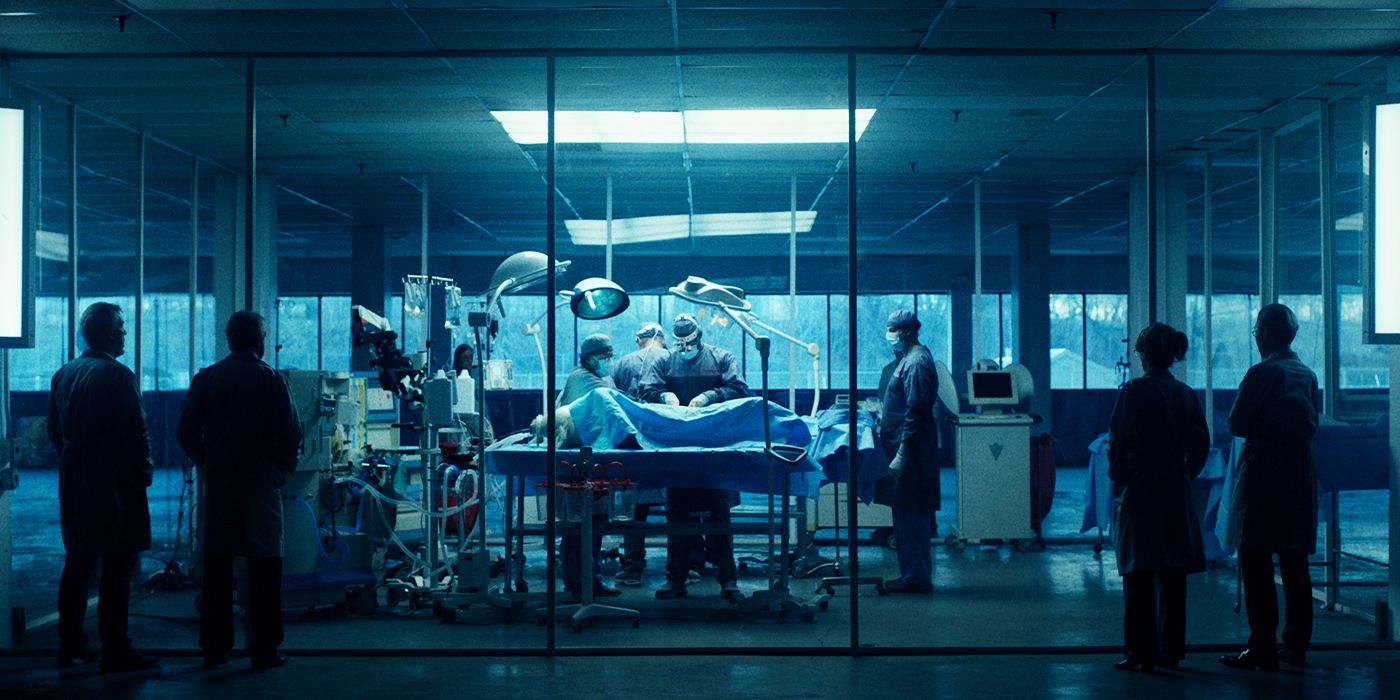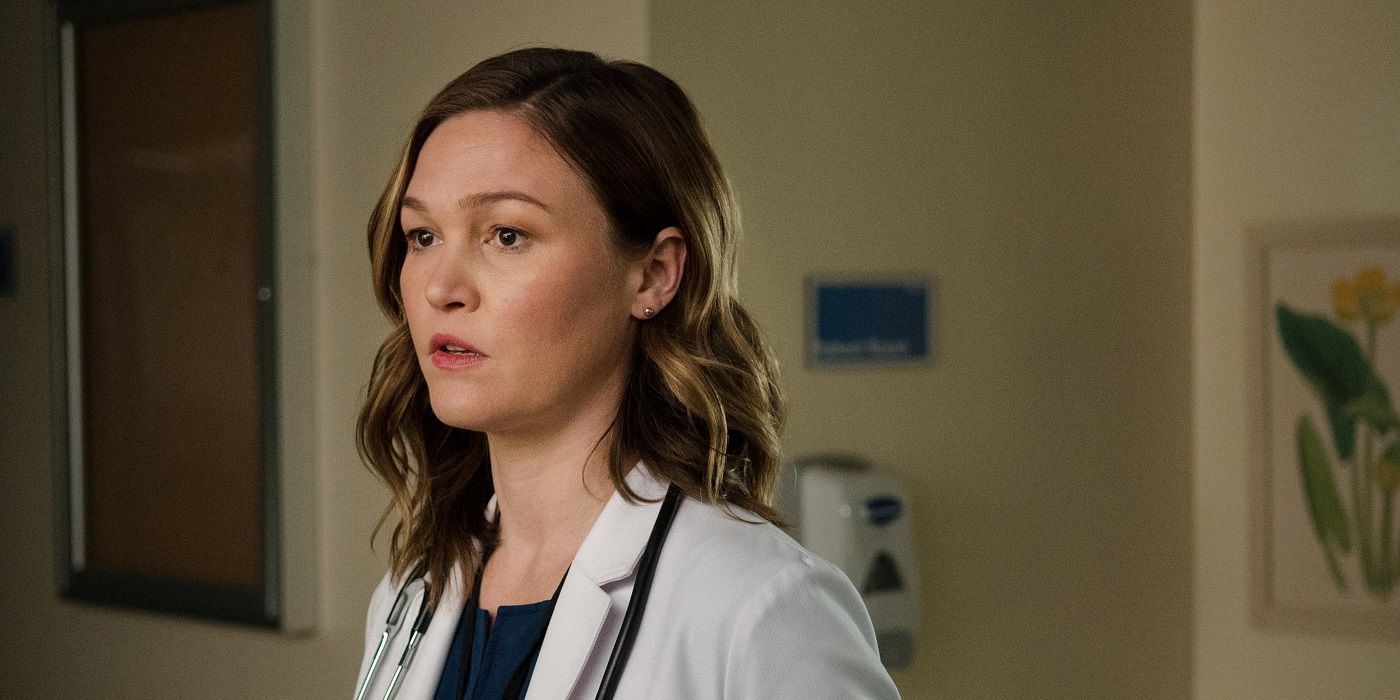Alternatingly mournful and optimistic, cynical and inspirational, The God Committee is a captivating medical drama that takes an honest look at a difficult topic. The title refers to a team of specialists who are given the impossible task of choosing who does, and does not, qualify for the life-saving organ transplant operation. The movie, which was directed and written by Austin Stark, had its world debut at the Tribeca Film Festival in 2021. Squeezing every possible ounce out of the actors, script and sets, Stark delivers a thrilling medical drama that asks: what is the cost of living?
Inspired by a play by Mark St. Germain, The God Committee tells its powerful story via two parallel timelines. Kelsey Grammer stars as Dr. Andre Boxer, a renowned heart surgeon and a key member of his hospital's organ transplant program. In the initial storyline, Boxer is preparing to leave the hospital to take a position in the private sector. His romantic interest, Dr. Jordan Taylor (Julia Stiles), is hired to take his place on the board. Her first day on the job, a patient about to receive a heart transplant dies on the table, leaving the team scrambling to choose a new candidate before the organ is no longer viable. The second storyline is set seven years in the future and shows how the actions from the first storyline have changed the characters and their circumstances.
Medical thrillers, by their nature, often depend on contrivances, but The God Committee feels believable and grounded throughout, thanks in part to Stark's soft touch and delicate pacing. It's an intimate film that sticks close to its core characters. While this amplifies the personal drama, some viewers may find the effect underwhelming. Stark makes best use of his available materials by focusing on interpersonal (and introspective) conflict, without falling into the trappings of melodrama. These doctors are professionals — their suffering doesn't manifest through screaming or violence, but as a haunted weariness behind their eyes. There is not a single aspect of the film that feels unnecessary, and even with the story jumping between two timelines, it's never confusing. Using a non-linear format is risky — if the story is hard to follow, it can take the audience out of the moment. This isn't a problem for The God Committee, which provides just enough visual and narrative cues to keep the timelines distinct and the juxtapositions logical. The scenes may be set seven years apart, but thematically, they're connected.
The excellent performances by Grammer and Stiles really aid in keeping The God Committee cohesive. Really, each actor plays two roles: the past versions of themselves and the present-day people who have been fundamentally altered by the decisions they made seven years ago. As Dr. Boxer, Grammer transforms himself from the hot-shot, egotistical surgeon of the past to a husk of a man in the future. Stiles' Dr. Taylor has a more subtle arc, going from an energetic idealist dedicated to helping people, to a tired professional who leads her team with a grim sense of practicality and realism. There's something inherently tragic about both characters, whose pursuit of helping others to live has come at the cost of them living their own lives. Boxer and Taylor are successful, but there's a sense that they're both profoundly lonely.
Boxer and Taylor each have their own distinct journey in the movie's dual timelines, but the two paths continually overlap in new and unexpected ways. Although there's more than enough excitement in the main story to keep viewers engaged, the remarkable depth in Stiles and Grammer's performances elevates the movie. There's a remarkable restraint throughout The God Committee that makes the tender moments between them meaningful and the rare expressions of joy resonate. Initially, Boxer and Taylor are lovers, but it's clear from their first scene together that the relationship is over. There's a distance between them that neither one seems capable, or perhaps willing, to close. One of the film's most memorable scenes is when the two finally, fleetingly, make a meaningful connection; it doesn't change what happens in the future timeline, but it confirms that hiding underneath the cold exteriors are two caring, loving individuals, made callous through experience.
In many ways, The God Committee is, at its core, a humble love letter to the professionals working in the healthcare system, continuously fighting an uphill battle to provide care in a deeply flawed system. There's a tone of precarity throughout, constantly reminding audiences how impermanent life is. The tone of The God Committee ultimately, however, isn't despair, but hope. Despite everything that happens, the viewer is left with the comfort of knowing that there are people fighting to enact change. This isn't a happy film, but it isn't needlessly distressing or painful either. It's a gentle movie that depicts undeniably tragic events, made palatable through reminders of humankind's capacity for perseverance, redemption and love — and it's that very complexity and depth that makes The God Committee such a joy to watch.
The God Committee is available in select theaters and VOD July 2, 2021. The film is 98 minutes long and is not yet rated.



